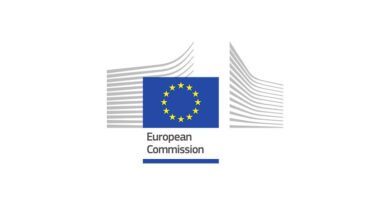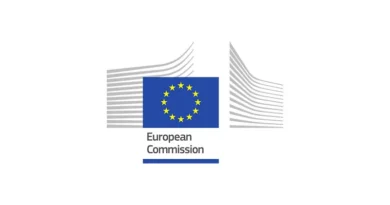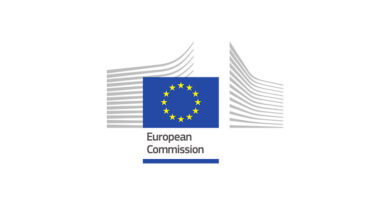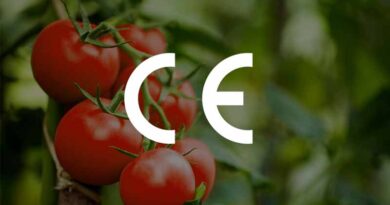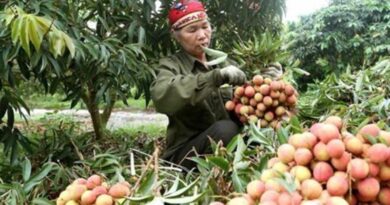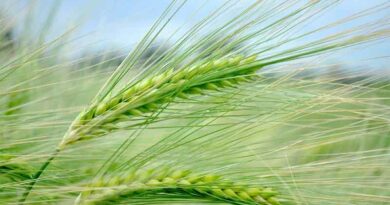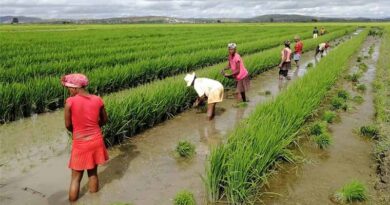Navigating the Impact of the European Green Deal on Indian Food Grain, Fruit, and Vegetable Exports
By Nimish Gangrade, Editor, Global Agriculture (The article was originally published in Global Agriculture)
01 July 2024, New Delhi: On 11th December 2019, the president of the European Commission Ursula Von Der Leyen announced that it wants Europe to become the first climate-neutral continent in the world by 2050. The looming challenges of climate change and environmental degradation pose significant risks not only to Europe but to the entire world.
In response, the European Green Deal emerges as a comprehensive solution to propel the EU towards a modern, resource-efficient, and competitive economy. This transformative initiative aims to achieve key objectives:
- Zero net emissions of greenhouse gases by 2050, fostering a sustainable future.
- Decoupling economic growth from resource use, promoting efficiency and sustainability.
- Ensuring inclusivity, leaving no person or place behind in the transition to a greener Europe.
A substantial portion, one-third, of the €1.8 trillion investments from the Next Generation EU Recovery Plan, along with funding from the EU’s seven-year budget, will be dedicated to financing the European Green Deal.
Farm to Fork Strategy of the European Green Deal
On 20 May 2020, the ‘Farm to fork strategy’ of the European Green Deal was presented to increase the sustainability of food systems. The strategy is the core of the European Green Deal and aims at making the food system fair, healthy and environmentally friendly.
The Farm to Fork Strategy aims to accelerate the transition to a sustainable food system that should:
- Have a neutral or positive environmental impact
- Help to mitigate climate change and adapt to its impacts
- Reverse the loss of biodiversity
- Ensure food security, nutrition and public health, making sure that everyone has access to sufficient, safe, nutritious, sustainable food
- Preserve the affordability of food while generating fairer economic returns, fostering the competitiveness of the EU supply sector and promoting fair trade

Progress on Farm to Fork Targets: Advancing Pesticide Reduction
In May 2020, the European Commission introduced two pesticide reduction targets as part of the Farm to Fork Strategy.
- Target 1: to reduce by 50% the use and risk of chemical pesticides by 2030
- Target 2: to reduce by 50% the use of more hazardous pesticides by 2030
Target 1 – 50% reduction in use and risk of chemical pesticides
This target will be measured based on (1) the quantities of active substances contained in the pesticides that are placed on the market (sold), and therefore used, in each Member State, and (2) the hazard properties of these active substances
Target 2 – 50% reduction in the use of more hazardous pesticides
This will be measured using data on the quantities of more hazardous active substances, the so-called ‘candidates for substitution’, contained in the pesticides which are placed on the market (sold), and therefore used, in each Member State.
Navigating the Impact of the European Green Deal on Indian Food Grain, Fruit, and Vegetable Exports
The European Green Deal, with its focus on sustainability and environmental standards, is expected to have a significant impact on food grain, fruit, and vegetable exports from India to the European Union (EU). The deal aims to ensure a transition to a greener and more resource-efficient economy, which includes stringent regulations and requirements for imported agricultural products. As a result, Indian exporters of food grain, fruit, and vegetables will need to comply with these new standards to maintain their market access to the EU.
In the year 2021-22, India’s total export of agricultural and allied commodities to the EU was of the order of US $ 1725.34 million, approximately 0.19 % higher than the previous year. One of the major commodities exported to the EU is basmati rice.
India’s basmati exports to Europe increased in 2022, following a decline in 2021. These exports to Europe have fluctuated in the past five years, registering—$216.2 million in 2018, $230.3 million in 2019, $309.5 million in 2020, $251.1 million in 2021, and $268.8 million in 2022. The northern state of Punjab has already announced banning 10 pesticides for the upcoming season in order to protect basmati exports.

One of the key aspects of the European Green Deal is the emphasis on reducing the environmental footprint of food production and promoting sustainable farming practices. This includes reducing the use of chemical pesticides and fertilizers, conserving water resources, and adopting organic and regenerative farming methods. To meet these sustainability criteria, Indian exporters may need to make significant adjustments in their agricultural practices and supply chains.
Furthermore, the European Green Deal places a strong focus on ensuring food safety and quality, as well as promoting transparency and traceability throughout the supply chain. This means that exporters will be required to demonstrate compliance with food safety regulations, provide accurate labeling and product information, and maintain robust traceability systems. These measures aim to enhance consumer trust and protect public health, but they may pose compliance challenges for Indian exporters who will need to adapt their processes accordingly.
While the implementation of the European Green Deal may present challenges for Indian exporters, it also offers opportunities. As the EU market increasingly demands sustainably produced food, Indian exporters who can meet these requirements will have a competitive advantage. By embracing sustainable practices, investing in certification schemes, and improving supply chain transparency, Indian exporters can position themselves as reliable suppliers of environmentally friendly and high-quality agricultural products.
Overall, the impact of the European Green Deal on food grain, fruit, and vegetable exports from India will depend on the ability of Indian exporters to make the production system (farmer) adapt to the new sustainability standards and meet the evolving expectations of the EU market. Producers and Exporters must prioritize sustainability, invest in infrastructure and technology, and collaborate with relevant stakeholders to ensure a smooth transition and maintain their market share in the EU.
(For Latest Agriculture News & Updates, follow Krishak Jagat on Google News)
(+80 Million Farming Audience Visits Krishak Jagat’s Hindi Website – Click Here for Website)


